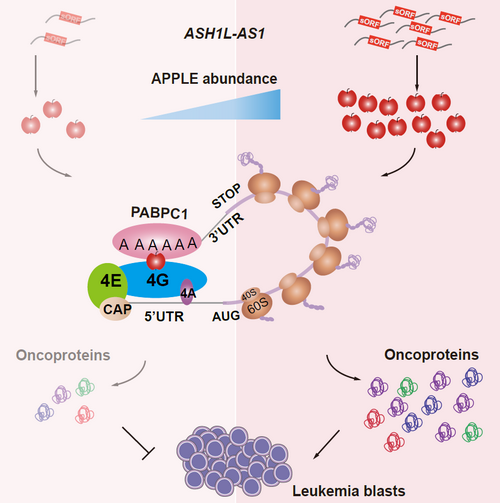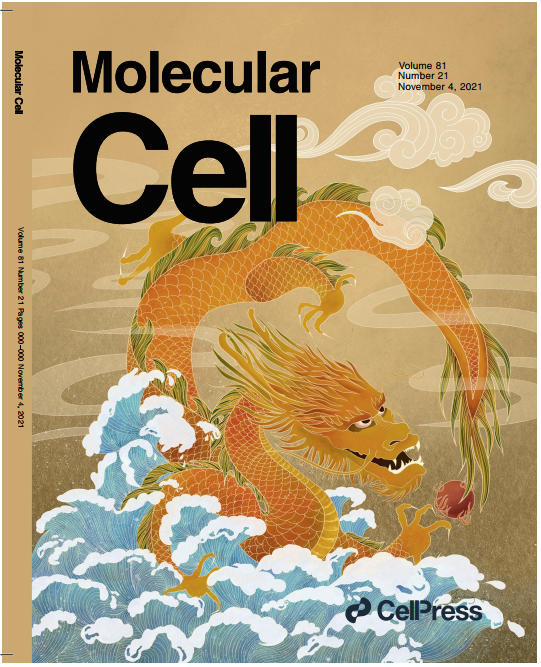Cover story: Prof. Yue-Qin Chen’s group at Sun Yat-sen University made a new progress in the area of long “noncoding” RNA-coded micropeptide
Source: School of Life Sciences
Edited by: Zheng Longfei, Wang Dongmei
The completion of the Human Genome Project revealed an important phenomenon that, a large number of non-protein coding genes with unknown functions were found in the genome, while the classical protein-coding genes only account for a small proportion of the genome. Therefore, one of the important tasks in the frontier field of life sciences is to explore the functions of the non-coding RNAs derived from these genes and how they work in cells.
Recently, Prof. Yue-Qin Chen’s group has made a new progress in uncovering the micropeptide-coding potential of long “non-coding” RNAs (lncRNAs). They identified a set of micropeptides embedded in small open reading frames (sORFs) of lncRNAs by applying multiomics approaches including ribo-seq, mass spectrometry and RNA-seq. Subsequent functional screening further illustrated that these micropetides regulated the uncontrolled proliferation of malignant cells. Interestingly, APPLE, a peptide located in endoplasmic reticulum (ER), is essential for the rapid translation of specific oncogenic proteins in malignant cells. Mechanical investigations demonstrated that APPLE is a novel regulator of the rate-limiting translation initiation step, in which it functions as a “rivet” to enhance the PABPC1-eIF4G interaction. In this way, APPLE facilitates mRNA circularization and eIF4F initiation complex assembly to support a specific pro-cancer translation program and accelerates the malignant transformation of cells.

Schematic of translation initiation regulated by micropeptide APPLE derived from “non-coding” RNA

Cover Story
In sum, Prof. Yue-Qin Chen’s group revealed for the first time the function of micropeptide in translation initiation regulation, providing a novel perspective for complicated translation networks in cells. In the future, targeting micropeptide to block oncogenic protein synthesis could be a promising strategy for precision medicine to treat highly heterogeneous malignancies. This work has broadened our knowledge on the rich resources of functional micropeptides hidden in “non-coding” RNAs, and offered a new explanation on how malignant cells take advantage of translation machinery to specifically promote the translation of oncoproteins.
This work (“The oncomicropeptide APPLE promotes hematopoietic malignancy by enhancing translation initiation”) is recently published in
Molecular Cell and is a cover story which has been previewed by Swati Mohapatra and George A Calin. Professor Yue-Qin Chen (Sun Yat-sen University) is the corresponding author. Dr. Lin-Yu Sun, Associate Professor Wen-Tao Wang, and Dr. Cai Han contribute equally to this work. Professor Xue-Qun Luo at the First Affiliated Hospital of Sun Yat-sen University provided and analyzed clinical data. This research was supported by National Key R&D Program of China (No. 2017YFA0504400), National Natural Science Foundation of China (No. 81770174 and 31700719), China Postdoctoral Science Foundation (2021T140771), and Distinguished Young Scholars of Guangdong Province (2021B1515020002).
Link to the article:
https://pubmed.ncbi.nlm.nih.gov/34555354/
Link to the preview:
https://pubmed.ncbi.nlm.nih.gov/34739825/